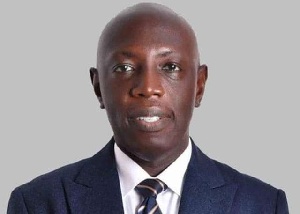- Home - News
- Elections 2024
- News Archive
- Crime & Punishment
- Politics
- Regional
- Editorial
- Health
- Ghanaians Abroad
- Tabloid
- Africa
- Religion
- Photo Archives
- Press Release
General News of Wednesday, 21 May 2025
Source: www.ghanawebbers.com
Don’t Work Ghanaians to Death: Why Raising the Retirement Age to 65 is misguided
Calls to raise Ghana’s retirement age from 60 to 65 are increasing. Advocates argue it is necessary due to longer life spans and pension sustainability. However, this argument falls apart when examined closely. Supporters may misunderstand health and aging realities in Ghana. Pushing this policy is not just poor governance; it disrespects public dignity.
The Longevity Mirage
Ghana's life expectancy at birth is currently 64.5 years, according to World Bank data (2023). This figure is below the global average of 73.4 years and much lower than the OECD average of over 80 years. Only 3.62% of Ghanaians are aged 65 or older. Among adults who reach 60, 71% die by age 65. Raising the retirement age would mean asking most Ghanaians to work until death.
Unlike Global North countries, Ghana lacks robust geriatric care and social support systems. In Ghana, longevity does not mean healthy aging.
Quality of Life Matters Too
Discussions about retirement should include Quality Adjusted Life Years (QALYs). This measure considers both quality and quantity of life lived. Many Ghanaians face declining health in their last years, marked by stress and reduced mobility. Extending retirement into this phase is inhumane and worsens social inequities.
Workplace stress, limited access to healthcare, poor nutrition, and lack of recreational opportunities are pressing issues in Ghana. Instead of raising the retirement age, policies should focus on improving post-retirement quality of life.
A Global South Perspective: What Others Know That We Ignore
Ghana faces demographic pressures similar to other Global South countries but with cautionary tales. In Nigeria, discussions on raising the retirement age mainly concern elite professions due to low life expectancy (around 55 years). Countries like Kenya and Uganda adjust retirement ages based on mortality data and sector needs.
In contrast, Ghana proposes a blanket increase to 65 years for all professions without considering health status or context. This approach reflects policy laziness rather than strategic reform.
Within Ghana, there are already different retirement ages for specific roles—Supreme Court Justices retire at 70 while professors can continue beyond 60 through contracts. These exceptions reflect less physically demanding jobs with better pay and healthcare access.
Who Benefits? Follow the Money
If this proposed shift isn't in the public interest, who benefits? Primarily pension schemes like SSNIT benefit from delayed retirements as fewer qualify for long-term pensions. The elite class also gains from extended working lives while others struggle toward an early grave.
This isn’t reform; it monetizes mortality instead.
The Ethical and Governance Imperative
Good governance must reflect people's realities. Policies extending working years without improving health outcomes or income security are indefensible. They confuse longevity myths with elite economic priorities.
Public policy must ask: Do we want citizens working until death or retiring with dignity? The answer should be clear.
Instead of raising the retirement age, Ghana should focus on:
- Improving access to preventive healthcare.
- Enhancing pension coverage for equitable retirements.
- Creating flexible retirement pathways reflecting sectoral realities.
Raising the retirement age is not forward-thinking; it reduces people to actuarial data points.
Working Longer: A Partial Truth with Conditional Merits
Some studies suggest that working longer correlates with increased longevity in high-income settings. Continued engagement can promote mental stimulation and purpose but depends on job type and conditions.
In Ghana, this correlation doesn’t apply universally across professions. Benefits accrue mainly to those in well-compensated roles like academia or civil service jobs while hazardous jobs often worsen health decline with prolonged work hours.
Ghana needs detailed actuarial data disaggregated by occupation and socio-economic status for responsible policymaking regarding retirement ages.
Retirement Anxiety and Age-Tampering Phenomenon
Ghana’s flawed retirement framework creates anxiety among workers in informal sectors about financial insecurity post-retirement. Many falsify their ages to extend working years despite its illegality—a symptom of a system lacking confidence in planning support after careers end.
This psychological stress signals a need for humane policies that reduce anxiety rather than institutionalize it.
The Demographic Context: Ghana’s Aging Is Still a Distant Prospect
Ghana's population remains youthful with a median age of just 21.5 years; over half are under 25 (2021 Census). The country does not face demographic challenges seen in aging societies like Japan or Germany.
Reform discussions must be grounded in our current demographics—not borrowed crises from elsewhere. Arguments for extending working life fail when most Ghanaians are far from retirement age or do not live long enough to benefit from it.
Sources:
- Ghana Statistical Service (2021)
- World Bank Data (2023)
- WHO Global Health Estimates (2022)
- SSNIT Annual Report (2022)
- OECD (2020)
- HelpAge International (2021)
Kwame Sarpong Asiedu (Ph.D.) is a Democracy and Development Fellow at CDD-Ghana.











